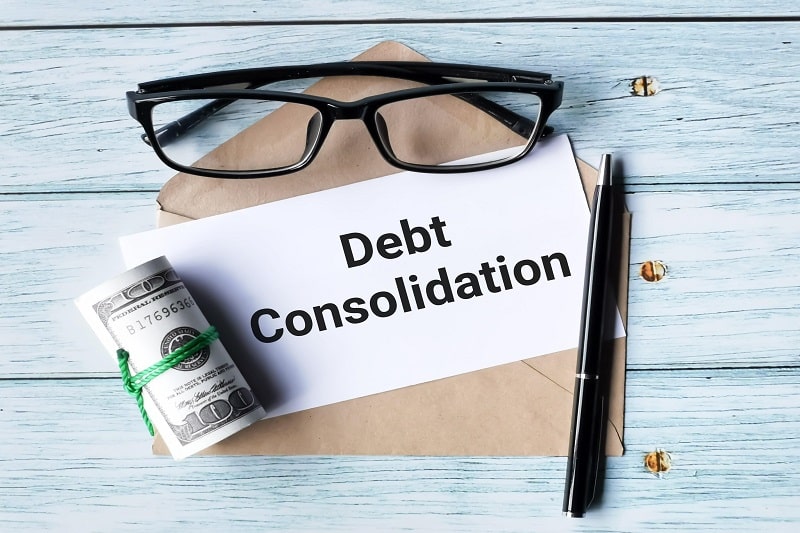The average American only makes the minimum payment to their debts. Making minimum payments on debts can threaten financial security and cause extreme stress; moreover, making only minimum payments to your debts could mean you pay a lot more by the time you see a zero balance.
Many consumers have found relief through debt consolidation programs. When managed well, a debt relief plan can save consumers time and money and make it far easier to manage bills and pay off debts. The end goal is to get out of debt as fast as possible, but as with any financial plan, it is vital to know what to expect and how the process works before diving in.
What is Debt Consolidation?
In short, debt consolidation is the process of combining several loans into a single amount owed. The result is that instead of making multiple payments to multiple creditors each month, you will make only ONE payment to payoff the balance of the debt consolidation.
If done right, debt consolidation can reduce your bills and make it easier to budget and plan. It can also save you money in the long-term by lowering your total payback of your debts There are several types of debt consolidation options, and the specific type that is best for you will vary based on the specifics of your financial situation.
Credit card balance transfer
This debt relief option involves taking out a new credit card and transferring all of your existing balances to it. This option tends to work best with a card that offers a low introductory interest rate (some will offer a temporary promotional rate of 0%) and that does not carry steep transfer fees. Also, make sure the terms of the agreement do not involve massive penalties for missed payments.
Debt consolidation loan
A consolidation loan works much like a personal promissory note. This option may lower your interest rate and streamline your payments. Be sure, however, to talk to your credit union or bank and compare terms, rates, and fees before taking on a consolidation loan.
Home equity loan
This involves borrowing against the equity in your home. When you take a loan against your equity, the loan is secured by your home. This means your home serves as collateral for the loan, so if you default, you can risk losing your property. Because the loan is secured, however, this also means you may be able to score a lower interest rate.
Debt consolidation benefits and drawbacks
Debt consolidation carries numerous advantages for consumers seeking to pay off debt – and fast. It can save you in the long-term by lowering your interest rates. Not to mention, many consumers find it far less stressful to make ONE debt payment per month instead of managing multiple creditors and deadlines.
However, there is no free lunch, and debt consolidation carries its potential downsides, too. If your credit is bad, you may not be guaranteed a lower interest rate. And in some cases, it can create a false sense of security that fails to teach consumers a valuable lesson about how to handle their finances: If you don’t improve your overall money management style, you can end up in the very same position once your loan is paid off.
Debt consolidation and your credit score
Unlike debt settlement and other forms of debt relief, debt consolidation generally has a positive or neutral impact on your credit score – so long as you make your payments in a timely manner. Generally, if you opt for a debt consolidation loan, paying off your debts with that new loan will improve your credit overall.
If you work with a debt relief company and you are instructed to temporarily stop making payments on your accounts, your score may dip – but only temporarily.
Applying for a debt consolidation loan
If you are interested in taking out a debt consolidation loan, you must be creditworthy. Lenders view your credit score as the clearest sign of your creditworthiness. If your score is above 740, you’re generally good to go. If it’s between 670-739, you MAY qualify, but you will likely pay a higher interest rate. And while it’s not impossible to qualify with a score below 670, you will likely face an interest rate so high that it defeats the purpose of consolidating your debt in the first place.
As such, if you are interested in taking out a debt consolidation loan, check your credit so you have a better sense of the types of rates you may be able to score. Weigh your options, compare terms and rates, and make sure you understand your full financial picture. If you have a strong credit score, you may be well-positioned for success in a debt consolidation program. If your credit is weaker, however, you may be better off exploring other options.
No matter which route you think you may choose, make sure you shop for the best rates from different lenders, and get prequalified so you can see the offers for which you may be eligible.


